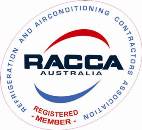The Australian Refrigeration Council (ARC) has recommended inclusion of a refrigerant analyser as an essential item of refrigeration and air conditioning workshop equipment, even though it is not a legal licensing requirement.
The national licensing body for Australia’s refrigeration technicians and businesses says refrigerant analysers are a sound investment in protecting against the hazards of inadvertently using contaminated refrigerant.
ARC chief executive officer Glenn Evans said it was vital for both commercial and safety reasons that climate control technicians know what gas they are handling.
“This applies to everyone working in climate control, but it’s a particular challenge in the automotive sector, where you might not know a vehicle’s service history,” he said.
“Having an analyser is insurance against the potentially serious consequences for you, your staff and your customers that having contaminated gas can cause.
“Consider the workshop that unknowingly recovered contaminated refrigerant from a customer vehicle, and thereby contaminated its workshop equipment and several other customer cars.
“That’s a costly problem to fix, but an even greater risk is where a system might have been illegally charged with a flammable refrigerant, and that can lead to serious injuries.”
Mr Evans said there was a wide range of analysers available, some at surprisingly low cost, which would prevent such problems before they happened.
“People who bring in a car with contaminated gas might not know it, but the damage will be done just the same, unless you analyse the gas before working on it,” he said.
This information was provided courtesy of Greg Shoemark from Australian Refrigeration Council and was slightly edited prior to publication.
For more info, click here



